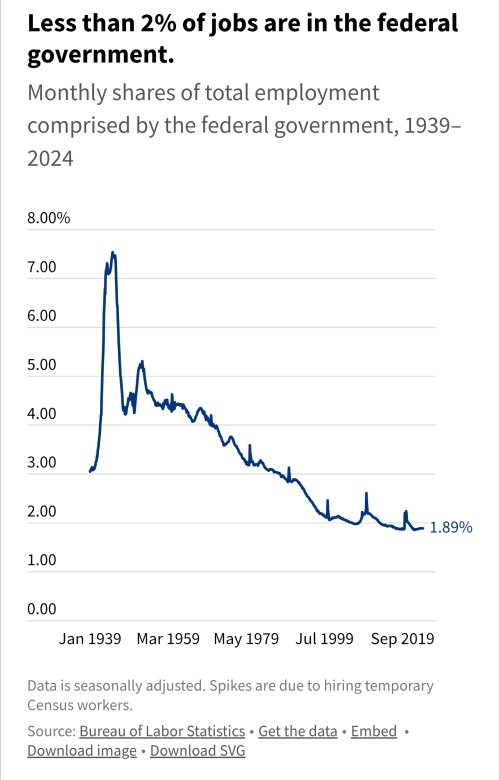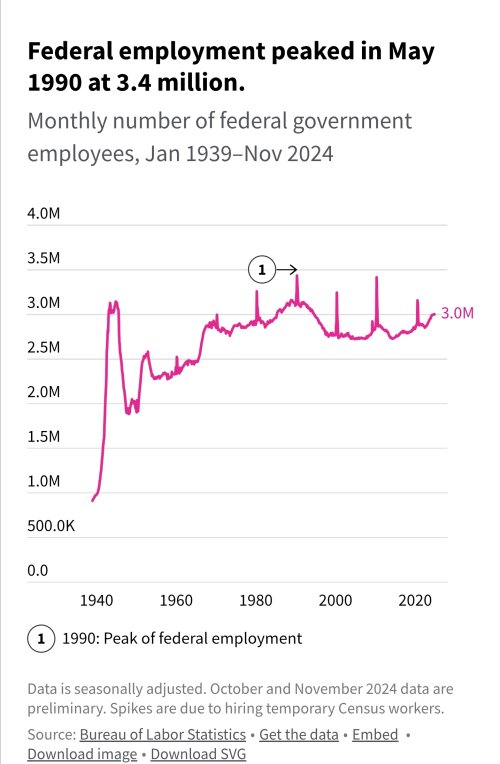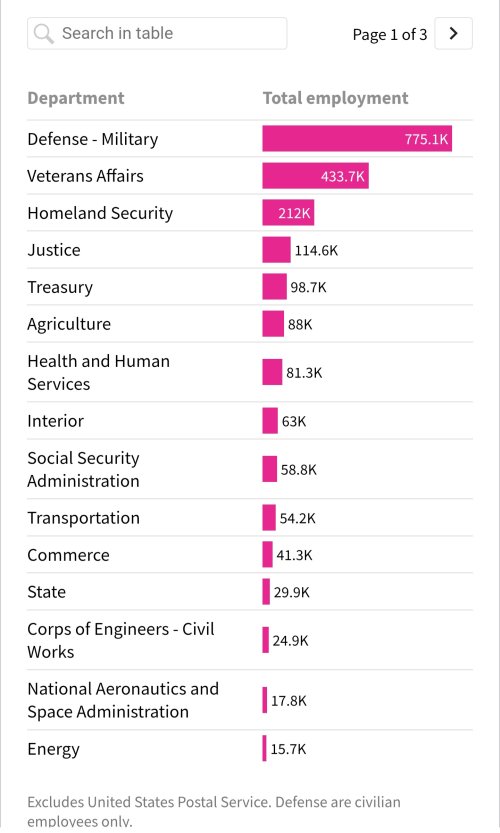Many of you are worried about our public lands in the wake of the workforce downsizing. Like you, I treasure our National Forests, National Parks and BLM lands. My heart truly goes out to those who lost their jobs. It's never easy. It happens regularly in the private sector, but it's rare to see government get smaller, so I understand the worry.
My name is Paul Barnard (spell the screen name backwards.) I live in Metairie LA for now. I just retired after working for the CG for almost 40 years. 20 active-duty and nearly 20 as a civilian. During that time I have partnered with a myriad of government agencies and have had a glimpse into how many operate. Let's just say that they share many similarities with the Coast Guard. I have to do a little drift to set the stage for what follows.
Early in my active duty career, it was normal for 2 of us to hop on a small boat and patrol 20-30 miles offshore. Our small boats back then didn't even have radar or GPS. Service wide, there were no major mishaps operating under such conditions. Government agencies tend to become more risk adverse over time. Standards today will find the small boats restricted to 10 miles offshore. The'll have a comprehensive compliment of safety equipment and electronics, and they'll likely have 4 people on board. They'll run 1/3 the SAR cases we did, they write far fewer BUIs, they'll write almost no federal fisheries tickets and they'll make far fewer law enforcement stops. All of this is verifiable. It's not opinion. Twice the people on the boats, less than half the production. I say that to say that agencies can review their SOPs to identify ways to achieve greater efficiency.
Beginning in about 2018 the Coast Guard started falling behind on recruiting. At our operational units, we were down 40%. To this date, we remain down about 25% on qualified personnel even though recruiting is back up to speed. The Coast Guard cut back on patrols and law enforcement activities. Some stations were closed and others had their personnel allowance formally reduced. Toss out the Covid induced spike in recreational boating deaths, and we saw a steady fall in the number of recreational boating deaths. 2023 was the lowest in decades. FWIW my program was Recreational Boating Safety. So despite the fact, that we had fewer people, engaging the public less frequently, deaths on the water went down substantially.
You may be wondering what the hell this has to do with our public lands. Well, there will be some bumps initially, but ultimately any government agency I have ever worked with could easily absorb a 10-20% loss in personnel without a degradation in service to the public. Through smarter and perhaps harder work, the mission will be accomplished. Many agencies spend an inordinate amount of time serving internal rather than external (public) customers. Bureaucratic crap that can and should be done away with. BS mandatory training. Ask and 90% of government employees would happily tell you that there are worthless employees in their unit. The same 90% will be able to tell you the people who have cake jobs in their agencies and they'll tell you that there are units or teams that could be done away with completely. It would be nice if the workforce reduction could have targeted such personnel, but as many of you know, it can be hard to fire even poor performing .gov employees. Unfortunately in order to downsize quickly, it had to be probationary employees who are often some of the most motivated.
Fearing change and fearing the unknown is normal. I have seen several RIFS in my career and have been furloughed. Good people who are good employees will always land on their feet. Don't panic, don't worry. A year or two from now, you'll see that things are back to or better than normal. I don't expect the Refuges, National Forests or National Parks that I visit too be impacted to any significant degree at all.
My name is Paul Barnard (spell the screen name backwards.) I live in Metairie LA for now. I just retired after working for the CG for almost 40 years. 20 active-duty and nearly 20 as a civilian. During that time I have partnered with a myriad of government agencies and have had a glimpse into how many operate. Let's just say that they share many similarities with the Coast Guard. I have to do a little drift to set the stage for what follows.
Early in my active duty career, it was normal for 2 of us to hop on a small boat and patrol 20-30 miles offshore. Our small boats back then didn't even have radar or GPS. Service wide, there were no major mishaps operating under such conditions. Government agencies tend to become more risk adverse over time. Standards today will find the small boats restricted to 10 miles offshore. The'll have a comprehensive compliment of safety equipment and electronics, and they'll likely have 4 people on board. They'll run 1/3 the SAR cases we did, they write far fewer BUIs, they'll write almost no federal fisheries tickets and they'll make far fewer law enforcement stops. All of this is verifiable. It's not opinion. Twice the people on the boats, less than half the production. I say that to say that agencies can review their SOPs to identify ways to achieve greater efficiency.
Beginning in about 2018 the Coast Guard started falling behind on recruiting. At our operational units, we were down 40%. To this date, we remain down about 25% on qualified personnel even though recruiting is back up to speed. The Coast Guard cut back on patrols and law enforcement activities. Some stations were closed and others had their personnel allowance formally reduced. Toss out the Covid induced spike in recreational boating deaths, and we saw a steady fall in the number of recreational boating deaths. 2023 was the lowest in decades. FWIW my program was Recreational Boating Safety. So despite the fact, that we had fewer people, engaging the public less frequently, deaths on the water went down substantially.
You may be wondering what the hell this has to do with our public lands. Well, there will be some bumps initially, but ultimately any government agency I have ever worked with could easily absorb a 10-20% loss in personnel without a degradation in service to the public. Through smarter and perhaps harder work, the mission will be accomplished. Many agencies spend an inordinate amount of time serving internal rather than external (public) customers. Bureaucratic crap that can and should be done away with. BS mandatory training. Ask and 90% of government employees would happily tell you that there are worthless employees in their unit. The same 90% will be able to tell you the people who have cake jobs in their agencies and they'll tell you that there are units or teams that could be done away with completely. It would be nice if the workforce reduction could have targeted such personnel, but as many of you know, it can be hard to fire even poor performing .gov employees. Unfortunately in order to downsize quickly, it had to be probationary employees who are often some of the most motivated.
Fearing change and fearing the unknown is normal. I have seen several RIFS in my career and have been furloughed. Good people who are good employees will always land on their feet. Don't panic, don't worry. A year or two from now, you'll see that things are back to or better than normal. I don't expect the Refuges, National Forests or National Parks that I visit too be impacted to any significant degree at all.
Last edited:








